The educational materials listed on this page are about Local and Regional Food Systems.
Local and regional food systems are ones that produce and distribute foods on a local scale rather than a national or international one. Food goes from farmer to table in fewer steps, by means of CSAs (Community-Supported Agriculture), local farmers’ markets, cooperatives, local food hubs or through commercial or institutional buyers, including schools, hospitals, grocery stores and restaurants. The goals of local food systems are improving the economic wellness of communities, increasing avenues to fresh local foods and creating viable markets for farmers and ranchers through value based supply chains and rural/urban integration. Local food systems also help sustainable communities prosper by strengthening the economic resilience of farmers and ranchers, via partnerships and social networks. Local farmers’ cooperatives provide farmers with the resources and scale of production needed to help each other tap lucrative value added food processing opportunities. Community supported agriculture, and farmers co-ops also help beginning farmers have a place to start through the support of the community.
More information on local food systems, including tips for land access, a topic of particular interest to beginning farmers, can be found in the topic brief Building Local and Regional Food Systems. This topic brief is an online collection of practical resources on business and marketing planning, distribution and aggregation, meat processing and food processing, and more. For example, find resources for people who want to build poultry processing facilities or explore small-scale meat packing. The guide Building a Sustainable Business can be of service to beginning farmers, with its approaches to starting a successful farming business in a local food system and writing business plans and marketing plans.
Showing 1-8 of 8 results
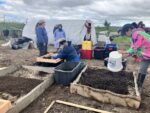
Training Ag Leaders in the Bering Strait
A large nonprofit with a long history in Alaska, the Rural Alaska Community Action Program (CAP) is well-known for its work addressing housing, workforce development, and health challenges. When COVID hit, the organization added food security work to their priorities. With the Coronavirus Aid, Relief, and Economic Security (CARES) Act funding, they initiated ten food […]
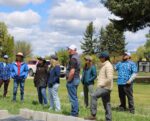
Exploring Montana Agriculture
The SARE Fellows trip to Montana was amazing. I enjoyed seeing the collaborative efforts among the various farms and organizations to share their knowledge, expertise, and resources to help each other thrive while meeting the needs of the community. This experience has shown me how people working together is what truly makes programs sustainable. – […]
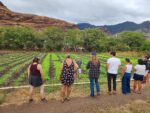
Building Bridges Across the Pacific
Collaboration, education, and community empowerment hold potential for driving positive change. Accordingly, Regional Food Business Centers in Hawaiian, Pacific Island, and Alaskan communities are harnessing their skills and resources to reach their shared vision of resilient, sustainable, and self-reliant local food systems. Geographic isolation, food transit logistics, large Indigenous populations, underdeveloped infrastructure, extreme climate change […]

Switching to Winter Crops Might Help Farmers Cope with Warming World
For people who grow food and cultivate the land, climate change isn’t something experienced though charts, graphs and predictions of foreboding futures. For growers, the threat of a warming world is immediate and increasing. “Climate change is playing out on farms like mine every day, every season and in every extreme weather event,” said Caitlin […]
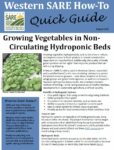
Growing Vegetables in Non-Circulating Hydroponic Beds
Growing vegetables hydroponically, such as bok choy or lettuce, can improve access to fresh produce in remote communities dependent on imported food. Additionally, the quality of locally grown produce can be higher than imported produce that can wilt during shipping. Download PDF
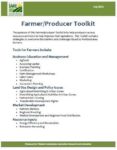
Metropolitan Foodshed Toolkit
A toolkit of strategies to support the evolution of a sustainable Portland Metropolitan Foodshed.
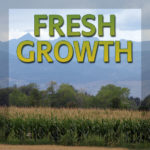
Fresh Growth Podcast
Fresh Growth: Approaches to a More Sustainable Future from Western Ag Practitioners introduces you to farmers and ranchers from around the western United States who are finding innovative sustainable practices that enrich the natural resources we all care about. These successful multi-generational operations experiment with new ideas and are making it pay. Listen in as […]
Responses to COVID-19 in Western Ag
Agriculture in the Western Region has been greatly impacted by COVID-19 and its resulting Shelter in Place orders, labor and processing challenges, and strongly shifting consumer behaviors and markets. It has also become clear that our agricultural community has been responding quickly and creatively. Western SARE cares about our community and feels a responsibility to share ideas and strategies. Toward that end, we conducted a survey of our state coordinators and project leaders of grants funded in the past three years. The data and examples are listed below. We will also create a report from this information, along with ideas provided on how Western SARE itself should adapt to the crisis.